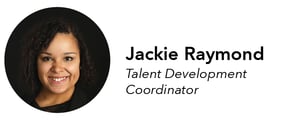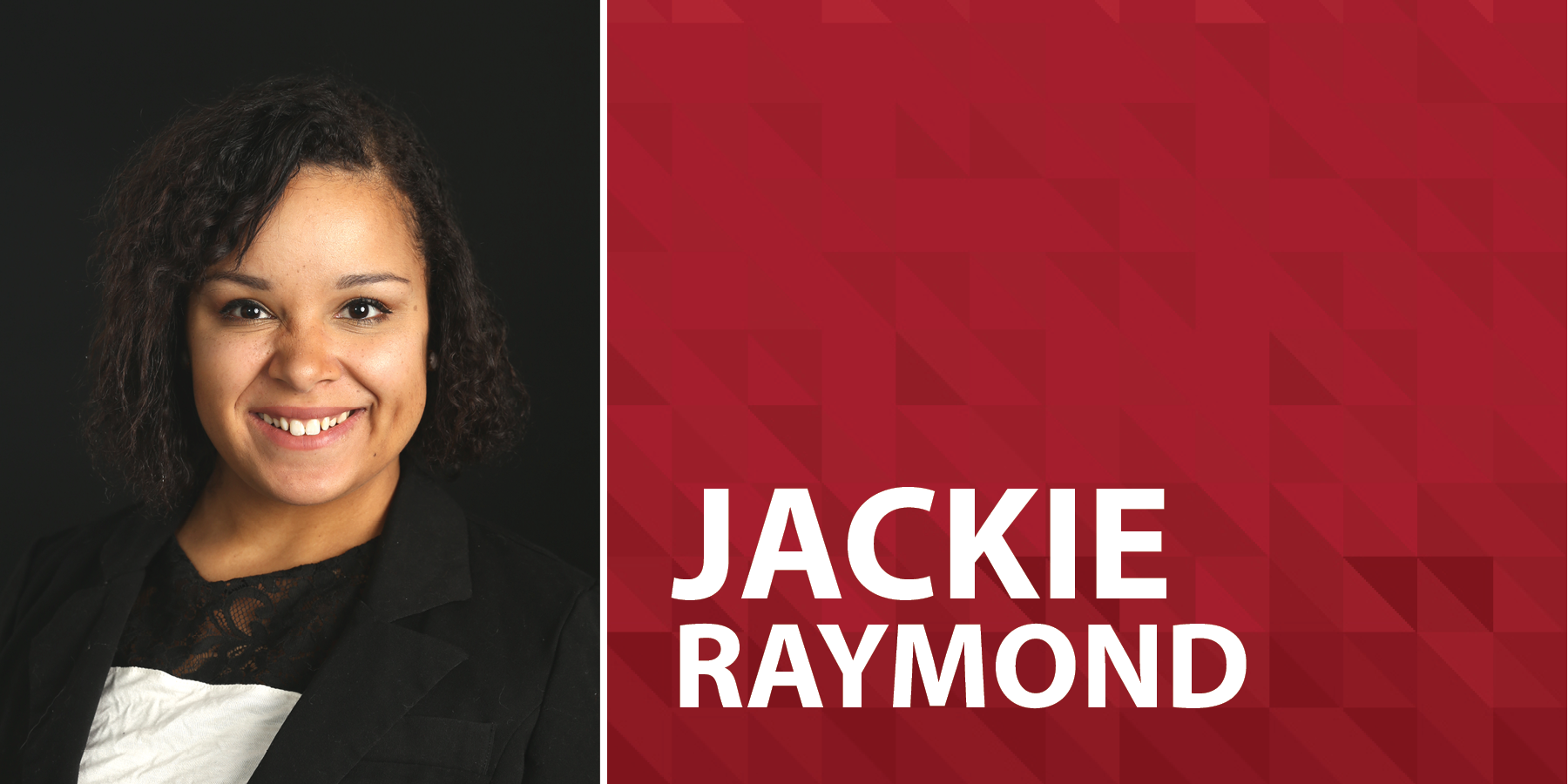As a company grows, it becomes evident with ongoing new hires that a streamlined training process is essential. As a relatively new department in our organization, we wanted to share TS Banking Groups' exploration into a training program through the voice of Training Development Coordinator Jackie Raymond.
In 2011, Jackie Raymond started her career at one of our charters as a Client Service Representative. She recalls how in her training experience, she was dropped into the branch to work on the frontline, occasionally receiving organized training, but primarily learning independently.
"Everything was in repetition, so it was difficult if a problem would arise that I had never seen before. I had no idea what to expect each day, but that was the routine," said Jackie.
As the company grew, the need for formal training slowly became more and more apparent. So in 2015, TSBG launched a formal training program by hiring a designated training coordinator. The coordinator’s focus was building a comprehensive educational course for new frontline members. Shortly after, HR and the educational team created “onboarding” for every new employee as a “life raft” to those jumping right in.
Since its launch, the training department has taken on a new image and added two new team members, forming the Talent Development (TD) department. Below Jackie Raymond, Talent Development Coordinator answers a few questions pertaining to TS Banking Groups unique program.
What are some of the specific training modules you are responsible for?
When the department began, I created and completed hands-on training for the first six months. Once onboarding began, I initiated “banker boot camp 2.0,” where we spent an additional 4-10 days doing full-service training.
I have been working with HR and the Talent Development Director to build an internal leadership and development program, which has been a lofty but forward-thinking goal.
I am also building a comprehensive E-Learning program while passing the onboarding and frontline development baton to our newest TD Coordinator. This E-Learning and Development will give us the ability to create video demos, simulate software, build games for added entertaining learning, and more for all departments under the TSBG umbrella. We will be utilizing blended learning, which gives our entire TSBG team a chance to find a learning style that fits, as modules will have hands on, audio, and visual components.
Is the training in-person or online?
Topic permitting, training sessions I facilitate have typically been 50/50. Onboarding is always completed in person. Required annual training, especially regarding banking regulation, is completed online.
We’re growing as a whole here at TSBG, and we want our team to grow alongside us, so we’d like to keep building those relationships by live interaction. However, we are still a small, new department, which means our reach is limited. As we begin navigating e-learning, we are making sure we are keeping the balance between fostering live interactions while keeping the flexibility of net courses.
Describe the first few days of employee onboarding.
The first day and a half consists of the company basics—security training, benefits and payroll, core values, general information, and some basic system navigation. Employees are treated to breakfast and lunch with their new manager their first day (works wonders for improving the employee comfort level). If the employee is in a non-frontline oriented role, they are typically taken to their department to start department specific training.
If the employee is frontline oriented, they remain in our training lab for full-service training, which includes program, process and products training. Ideally, they feel less anxiety post-training, assured they know the basics. We also try to get these teammates out to other branches to meet their peers. A new role is much less daunting when you know your support system.
How do you separate annual training vs. one-time-only training?
Certain items are required by state and federal law to be completed annually, so we plan for those the year prior.
We also review and discuss the effectiveness/frequency of other topics. For example, our bankers learn about KASASA® consistently and access online resources. Because we already have this system in place, we only do full account training once a year, as any more than that would become excessive.
I have to say we don’t complete “one-time-only” training often. Repetition is one of my favorite words, which means we try to facilitate/initiate training multiple times.
Learning a process or procedure is like learning the lyrics to a song—you may have to hit repeat a few times before each line sticks, even if you know part of it already.
What kind of response have you seen from new employees?
Positive and upbeat! We send surveys out at multiple intervals in the new employee’s first 90 days, and we’re often told that our onboarding is much warmer and more encouraging than any onboarding that the new hire has been through before.
Also, we aren’t dropping people off at desks and saying, “good luck!” We want them to know they are valued.
Why talent “development”, and not “training”?
We want new hires to share the same feelings about the company as we do. I think you have to believe in what you’re doing to be able to do it effectively.
With passion comes retention.
We’ve changed our processes, eliminating the sterile image that comes to mind when you hear “training.” We immerse new employees into our culture—with an “other’s oriented” mindset.
How does your company execute training? Tell us your thoughts and suggestions in the comments.
 Jackie is an Atlantic, IA native with a passion for growth and self-development. She began working for TS Bank in 2011 while she finished a secondary education degree, and help build the Talent Development department in 2015. She finds her joy teaching and building learning plans in even the most unconventional classrooms, such as board rooms and web conferences. Raymond has made it a mission to give back to the communities and programs that helped her greatly in her youth, so she has devoted many hours to various services in the SW IA area, such as the MICAH House, Junior Achievement, and Midlands Humane Society.
Jackie is an Atlantic, IA native with a passion for growth and self-development. She began working for TS Bank in 2011 while she finished a secondary education degree, and help build the Talent Development department in 2015. She finds her joy teaching and building learning plans in even the most unconventional classrooms, such as board rooms and web conferences. Raymond has made it a mission to give back to the communities and programs that helped her greatly in her youth, so she has devoted many hours to various services in the SW IA area, such as the MICAH House, Junior Achievement, and Midlands Humane Society.


